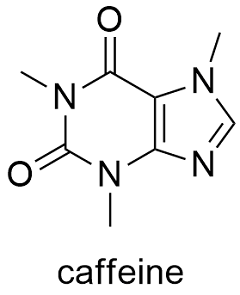Caffeine from four cups of coffee protects the heart with the help of mitochondria
Caffeine consumption has been associated with lower risks for multiple diseases, including type II diabetes, heart disease, and stroke, but the mechanism underlying these protective effects has been unclear. A new study now shows that caffeine promotes the movement of a regulatory protein into mitochondria, enhancing their function and protecting cardiovascular cells from damage. The work, publishing 21 June in the open access journal PLOS Biology, by Judith Haendeler and Joachim Altschmied of the Medical Faculty, Heinrich-Heine-University and the IUF-Leibniz Research Institute for Environmental Medicine in Duesseldorf, Germany, and colleagues, found that the protective effect was reached at a concentration equivalent to consumption of four cups of coffee, suggesting the effect may be physiologically relevant.

"Our results indicate a new mode of action for caffeine," said Haendeler, "one that promotes protection and repair of heart muscle through the action of mitochondrial p27. These results should lead to better strategies for protecting heart muscle from damage, including consideration of coffee consumption or caffeine as an additional dietary factor in the elderly population. Furthermore, enhancing mitochondrial p27 could serve as a potential therapeutic strategy not only in cardiovascular diseases but also in improving healthspan."
![]() Explore further: Caffeine's sport performance advantage for infrequent tea and coffee drinkers
Explore further: Caffeine's sport performance advantage for infrequent tea and coffee drinkers
More information: Ale-Agha N, Goy C, Jakobs P, Spyridopoulos I, Gonnissen S, Dyballa-Rukes N, et al. (2018) CDKN1B/p27 is localized in mitochondria and improves respiration-dependent processes in the cardiovascular system—New mode of action for caffeine. PLoS Biol 16(6): e2004408. doi.org/10.1371/journal.pbio.2004408
June 21, 2018
https://medicalxpress.com/


